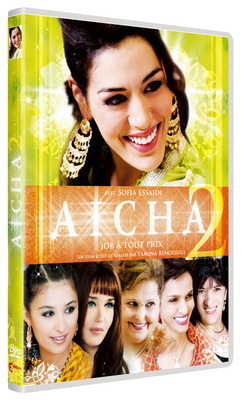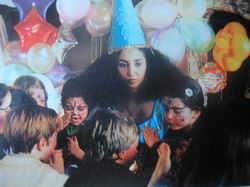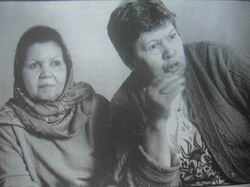Fiche Personne
Musique
Théâtre
Cinéma/TV
Littérature / édition
Danse
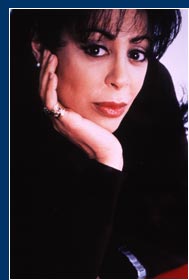
Yamina Benguigui
Réalisateur/trice, Ecrivain/ne, Producteur/trice, Scénariste
Algérie, France

Site web : www.yaminabenguigui.fr
Français
Née le 09 avril 1957 à Lille (France), de parents algériens.
Yamina Benguigui est cinéaste et écrivain, chevalier de la Légion d’honneur, des Arts et des lettres et de l’Ordre national du mérite.
Yamina Benguigui, elle-même enfant de l’immigration, a fui sa famille pour finalement revenir, par le cinéma, à la culture de ses parents. Elle est une des premières réalisatrices et productrices françaises d’origine algérienne, profession qu’elle exerce au sein de la société Bandits dont elle est actionnaire. Depuis 1994, elle a consacré son travail de documentariste engagée à l’exploration de la part humaine de l’immigration maghrébine en France et de l’identité musulmane au travers de sagas documentaires comme Mémoires d’immigrés, l’héritage maghrébin (7 d’or 1997 du meilleur documentaire) ou Femmes d’Islam, qui ont été tous deux distingués par de nombreux prix internationaux et sont aujourd’hui étudiés en section cinéma et sociologie dans de nombreuses universités (Berkeley, New York, Berlin.).
Elle a reçu en 2003 le prix de la paix à Florence pour l’ensemble de son ouvre.
Avec sa première ouvre de fiction pour le cinéma, réalisée en 2001, Inch’allah dimanche, l’histoire d’une femme algérienne qui rejoint sa famille en Picardie, récompensée par plus de 27 prix internationaux, elle renoue avec ses thèmes de prédilection mais cette fois-ci abordés sous l’angle de la fiction : l’enracinement et la mémoire.
Son ouvre de documentariste s’est aussi intéressée aux thèmes de l’érotisme dans la culture musulmane (Le jardin parfumé) ou de l’intégration au travers d’institutions comme l’armée avec Aïcha, Mohamed, Chaïb… engagés pour la France.
Elle est actuellement présidente du FIPA pour 3 ans et prépare son second long-métrage, Le Paradis ? C’est complet ! ainsi qu’une série (Aïcha, 6×52′)pour France 2.
Elle vient de terminer la réalisation d’un documentaire pour France 5 : Le plafond de verre qui traite des difficultés rencontrées par les jeunes Français diplômés et même surdiplômés issus de l’immigration dans leur accession dans le monde de l’entreprise, victimes des préjugés raciaux.
Le 4 avril 2006, Yamina Benguigui, a été nommée membre du Haut Conseil à l’Intégration.
Le Haut Conseil à l’Intégration, instance de réflexion et de propositions qui, à la demande du Premier ministre ou du comité interministériel, donne son avis sur l’ensemble des questions relatives à l’intégration et à l’immigration.
Yamina Benguigui est cinéaste et écrivain, chevalier de la Légion d’honneur, des Arts et des lettres et de l’Ordre national du mérite.
Yamina Benguigui, elle-même enfant de l’immigration, a fui sa famille pour finalement revenir, par le cinéma, à la culture de ses parents. Elle est une des premières réalisatrices et productrices françaises d’origine algérienne, profession qu’elle exerce au sein de la société Bandits dont elle est actionnaire. Depuis 1994, elle a consacré son travail de documentariste engagée à l’exploration de la part humaine de l’immigration maghrébine en France et de l’identité musulmane au travers de sagas documentaires comme Mémoires d’immigrés, l’héritage maghrébin (7 d’or 1997 du meilleur documentaire) ou Femmes d’Islam, qui ont été tous deux distingués par de nombreux prix internationaux et sont aujourd’hui étudiés en section cinéma et sociologie dans de nombreuses universités (Berkeley, New York, Berlin.).
Elle a reçu en 2003 le prix de la paix à Florence pour l’ensemble de son ouvre.
Avec sa première ouvre de fiction pour le cinéma, réalisée en 2001, Inch’allah dimanche, l’histoire d’une femme algérienne qui rejoint sa famille en Picardie, récompensée par plus de 27 prix internationaux, elle renoue avec ses thèmes de prédilection mais cette fois-ci abordés sous l’angle de la fiction : l’enracinement et la mémoire.
Son ouvre de documentariste s’est aussi intéressée aux thèmes de l’érotisme dans la culture musulmane (Le jardin parfumé) ou de l’intégration au travers d’institutions comme l’armée avec Aïcha, Mohamed, Chaïb… engagés pour la France.
Elle est actuellement présidente du FIPA pour 3 ans et prépare son second long-métrage, Le Paradis ? C’est complet ! ainsi qu’une série (Aïcha, 6×52′)pour France 2.
Elle vient de terminer la réalisation d’un documentaire pour France 5 : Le plafond de verre qui traite des difficultés rencontrées par les jeunes Français diplômés et même surdiplômés issus de l’immigration dans leur accession dans le monde de l’entreprise, victimes des préjugés raciaux.
Le 4 avril 2006, Yamina Benguigui, a été nommée membre du Haut Conseil à l’Intégration.
Le Haut Conseil à l’Intégration, instance de réflexion et de propositions qui, à la demande du Premier ministre ou du comité interministériel, donne son avis sur l’ensemble des questions relatives à l’intégration et à l’immigration.
English
Born in April 9, 1957 in Lille (France) to Algerian parents, film director Yamina Benguigui is renowned for her penetrating cinematic treatises on gender issues related to the North African immigrant community in France, particularly the Maghreb. Benguigui began her career as assistant to Jean-Daniel Pollet for four years before beginning to write and direct her own films including the documentaries Women of Islam in 1994 and Immigrant Memories-The North African Inheritance in 1997. It was The Immigrant Memories- the North African Inheritance that marked her success in the film industry. This stunning reflection on the memory and the exile of North African immigrants was welcomed favorably by critics and the general public. Since then, Benguigui has realized a series of short films and documentaries including The Perfumed Garden (2000), Pimprenelle (2000) and Pas d’histoire! A Look at Everyday Racism (2000). In 2001, she made her first feature-length fiction film Inch’Allah Dimanche. Despite her success, it took Benguigui awhile to be accepted both by her family and the general public as a prominent Algerian female filmmaker. According to her, « It was extremely difficult for me. One price I had to pay was that I had to be willing to cut myself off from my father. My father was not willing for me to follow this career, and it’s only recently that I’ve been able to reestablish contact with him [?] Because you’re cut off to some extent from French society, you have to really impose yourself, you have to really fight to be able to work on subjects like this, subjects and realities that France isn’t necessarily willing to acknowledge. It’s a constant struggle, and you’re constantly juggling several different hats: the hat of a woman, a director, the daughter of immigration. It’s not easy. »
From
Wikipedia, the free encyclopedia
From
Wikipedia, the free encyclopedia
Films(s)
-
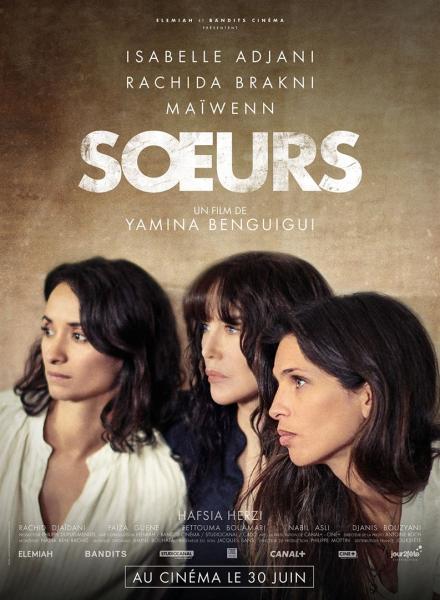 SoeursLong-métrage – 2020Trois soeurs se déchirent lorsque l’une d’elles décide de raconter la vie de leur père mourant au théâtre. Depuis trente ans, trois sœurs franco-algériennes, Zorah, Nohra et Djamila vivent dans l’espoir de retrouver l…Yamina Benguigui est lié(e) à ce film en tant que réalisateur/trice
SoeursLong-métrage – 2020Trois soeurs se déchirent lorsque l’une d’elles décide de raconter la vie de leur père mourant au théâtre. Depuis trente ans, trois sœurs franco-algériennes, Zorah, Nohra et Djamila vivent dans l’espoir de retrouver l…Yamina Benguigui est lié(e) à ce film en tant que réalisateur/trice -
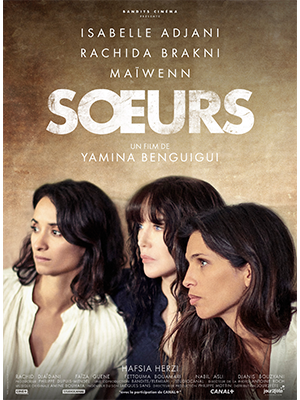 SœursLong-métrage – 2019En mettant en scène une partie de son histoire, Zorah, dramaturge d’origine franco-algérienne, réveille les fantômes du passé dont la figure terrible du père, Ahmed, un militant du mouvement indépendantiste algérien venu…Yamina Benguigui est lié(e) à ce film en tant que réalisateur/trice
SœursLong-métrage – 2019En mettant en scène une partie de son histoire, Zorah, dramaturge d’origine franco-algérienne, réveille les fantômes du passé dont la figure terrible du père, Ahmed, un militant du mouvement indépendantiste algérien venu…Yamina Benguigui est lié(e) à ce film en tant que réalisateur/trice -
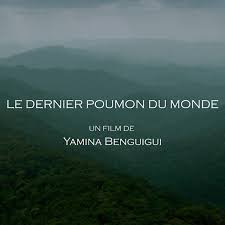 Dernier poumon du monde (Le)Moyen-métrage – 2018Alors que la récente actualité présentait l’Amazonie en proie aux flammes, la réalisatrice Yamina Benguigui alerte, dans son film, l’opinion internationale sur la situation du deuxième poumon du monde qui menace de dispa…Yamina Benguigui est lié(e) à ce film en tant que réalisateur/trice
Dernier poumon du monde (Le)Moyen-métrage – 2018Alors que la récente actualité présentait l’Amazonie en proie aux flammes, la réalisatrice Yamina Benguigui alerte, dans son film, l’opinion internationale sur la situation du deuxième poumon du monde qui menace de dispa…Yamina Benguigui est lié(e) à ce film en tant que réalisateur/trice -
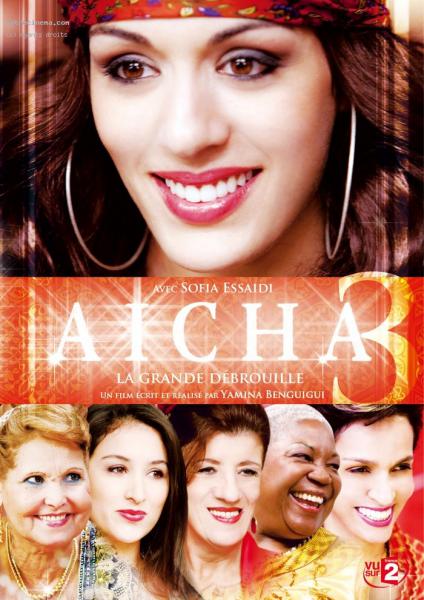 Aïcha 3 – La grande débrouilleLong-métrage – 2011Pour être passée à un cheveu de perdre son job, Aïcha est plus que jamais déterminée à réaliser son rêve : quitter la cité. Albane Granger la charge alors de réaliser une enquête de satisfaction sur les produits ‘Frisé i…Yamina Benguigui est lié(e) à ce film en tant que réalisateur/trice
Aïcha 3 – La grande débrouilleLong-métrage – 2011Pour être passée à un cheveu de perdre son job, Aïcha est plus que jamais déterminée à réaliser son rêve : quitter la cité. Albane Granger la charge alors de réaliser une enquête de satisfaction sur les produits ‘Frisé i…Yamina Benguigui est lié(e) à ce film en tant que réalisateur/trice -
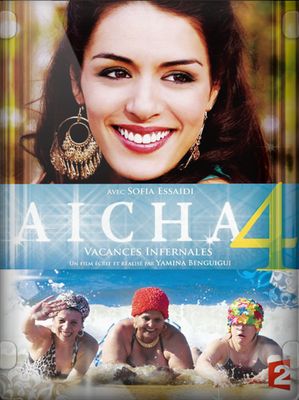 Aïcha 4 – Les vacances infernalesLong-métrage – 2011Chez les Bouamazza, les vacances, c’est le retour au pays. Mais cette année, avec la révolution du printemps arabe, les projets de la famille sont tombés à l’eau. Aïcha a réussi à leur organiser un séjour dans un gîte en…Yamina Benguigui est lié(e) à ce film en tant que réalisateur/trice
Aïcha 4 – Les vacances infernalesLong-métrage – 2011Chez les Bouamazza, les vacances, c’est le retour au pays. Mais cette année, avec la révolution du printemps arabe, les projets de la famille sont tombés à l’eau. Aïcha a réussi à leur organiser un séjour dans un gîte en…Yamina Benguigui est lié(e) à ce film en tant que réalisateur/trice -
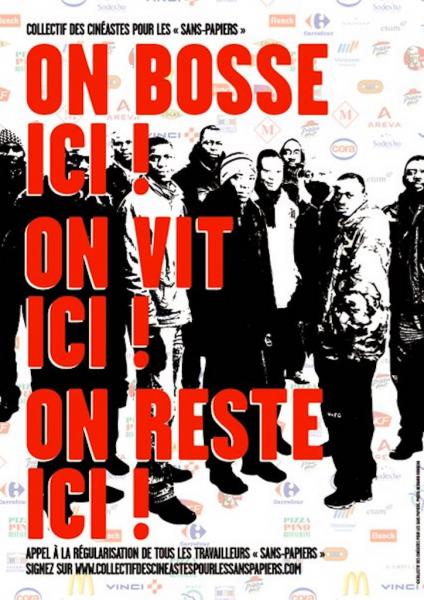 On bosse ici ! On vit ici ! On reste ici !Court-métrage – 2010Film réalisé par le Collectif des cinéastes pour les « sans-papiers » pour appeler à la régularisation des travailleurs sans papiers vivant en France et signé par plus de 300 professionnels du cinéma (cinéastes, acteurs, p…Yamina Benguigui est lié(e) à ce film en tant que réalisateur/trice
On bosse ici ! On vit ici ! On reste ici !Court-métrage – 2010Film réalisé par le Collectif des cinéastes pour les « sans-papiers » pour appeler à la régularisation des travailleurs sans papiers vivant en France et signé par plus de 300 professionnels du cinéma (cinéastes, acteurs, p…Yamina Benguigui est lié(e) à ce film en tant que réalisateur/trice -
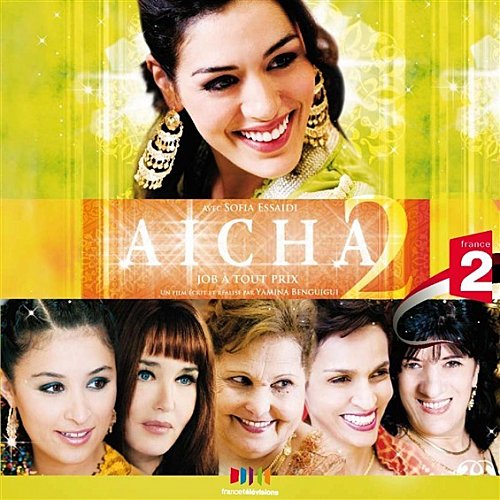 Aïcha 2 – job à tout prixLong-métrage – 2010Aïcha vit avec sa famille dans une cité ghetto de la banlieue nord de Paris. Stagiaire dans l’antenne locale d’un grand groupe, elle rêve d’intégrer le siège, à Paris. Personne ne semble la remarquer jusqu’à ce que la di…Yamina Benguigui est lié(e) à ce film en tant que réalisateur/trice
Aïcha 2 – job à tout prixLong-métrage – 2010Aïcha vit avec sa famille dans une cité ghetto de la banlieue nord de Paris. Stagiaire dans l’antenne locale d’un grand groupe, elle rêve d’intégrer le siège, à Paris. Personne ne semble la remarquer jusqu’à ce que la di…Yamina Benguigui est lié(e) à ce film en tant que réalisateur/trice -
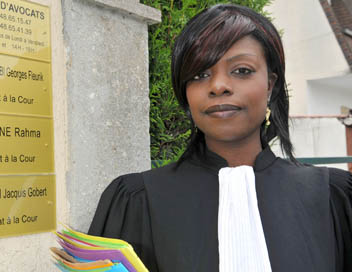 9/3, mémoire d’un territoireLong-métrage – 2008Après Mémoires d’immigrés (Sept d’or du documentaire en 1998) et Le Plafond de verre, Yamina Benguigui porte un regard original et passionné sur l’histoire d’un département sous tension : le 93. Le film documentaire con…Yamina Benguigui est lié(e) à ce film en tant que réalisateur/trice
9/3, mémoire d’un territoireLong-métrage – 2008Après Mémoires d’immigrés (Sept d’or du documentaire en 1998) et Le Plafond de verre, Yamina Benguigui porte un regard original et passionné sur l’histoire d’un département sous tension : le 93. Le film documentaire con…Yamina Benguigui est lié(e) à ce film en tant que réalisateur/trice -
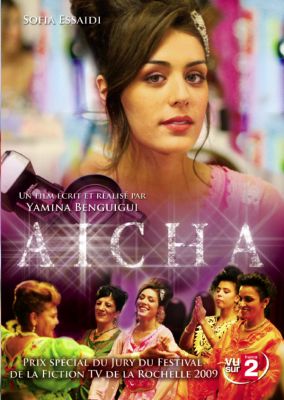 Aïcha [réal: Yamina Benguigui]Long-métrage – 2008Aïcha, Française de 25 ans d’origine algérienne, habite dans une cité ghetto de la banlieue nord de Paris, où règne la loi du « groupe » et où chacun vit sous la surveillance de l’autre. Fille aînée des Bouamazza, une fami…Yamina Benguigui est lié(e) à ce film en tant que réalisateur/trice
Aïcha [réal: Yamina Benguigui]Long-métrage – 2008Aïcha, Française de 25 ans d’origine algérienne, habite dans une cité ghetto de la banlieue nord de Paris, où règne la loi du « groupe » et où chacun vit sous la surveillance de l’autre. Fille aînée des Bouamazza, une fami…Yamina Benguigui est lié(e) à ce film en tant que réalisateur/trice -
 Plafond de verre (Le)Long-métrage – 2005Europe's racial make-up is quickly changing. French-Algerian filmmaker Yamina Benguigui is hoping to start a conversation about affirmative action – a policy that does not exist in France today. Benguigui's Le Pl…Yamina Benguigui est lié(e) à ce film en tant que réalisateur/trice
Plafond de verre (Le)Long-métrage – 2005Europe's racial make-up is quickly changing. French-Algerian filmmaker Yamina Benguigui is hoping to start a conversation about affirmative action – a policy that does not exist in France today. Benguigui's Le Pl…Yamina Benguigui est lié(e) à ce film en tant que réalisateur/trice -
PimprenelleCourt-métrage – 2003Série « 12 films sur le racisme au qotidien »Yamina Benguigui est lié(e) à ce film en tant que réalisateur/trice
-
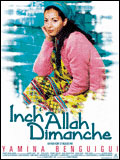 Inch’Allah dimancheLong-métrage – 2001En 1974, à l'époque du regroupement familial, Zouina, une belle maghrébine d'une trentaine d'années, arrive de son Algérie natale avec ses trois enfants pour s'installer…Yamina Benguigui est lié(e) à ce film en tant que réalisateur/trice
Inch’Allah dimancheLong-métrage – 2001En 1974, à l'époque du regroupement familial, Zouina, une belle maghrébine d'une trentaine d'années, arrive de son Algérie natale avec ses trois enfants pour s'installer…Yamina Benguigui est lié(e) à ce film en tant que réalisateur/trice -
 Pas d’histoires ! 12 regards sur le racisme au quotidien.Long-métrage – 2000[ VHS ou DVD disponible à la médiathèque des 3 mondes ] 12 courts-métrages Témoignages de jeunes auteurs (issus d'un appel à scénarios auprès de jeunes de 16 &…Yamina Benguigui est lié(e) à ce film en tant que réalisateur/trice
Pas d’histoires ! 12 regards sur le racisme au quotidien.Long-métrage – 2000[ VHS ou DVD disponible à la médiathèque des 3 mondes ] 12 courts-métrages Témoignages de jeunes auteurs (issus d'un appel à scénarios auprès de jeunes de 16 &…Yamina Benguigui est lié(e) à ce film en tant que réalisateur/trice -
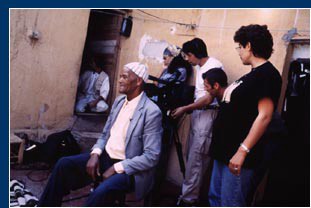 Jardin parfumé (Le)Moyen-métrage – 2000Au XVème siècle, éprouver le plaisir était important pour un bon musulman, et pour une bonne musulmane. Preuve en est, Le Jardin parfumé, manuel érotique de Cheikh Nefzaoui, prop…Yamina Benguigui est lié(e) à ce film en tant que réalisateur/trice
Jardin parfumé (Le)Moyen-métrage – 2000Au XVème siècle, éprouver le plaisir était important pour un bon musulman, et pour une bonne musulmane. Preuve en est, Le Jardin parfumé, manuel érotique de Cheikh Nefzaoui, prop…Yamina Benguigui est lié(e) à ce film en tant que réalisateur/trice -
Mémoires d’immigrésLong-métrage – 1997Les témoignages de ceux qui sont les acteurs -souvent oubliés ou muets- de ce qui constitue aujourd'hui les racines d'un débat national : l'immigration maghrébine. Non seulement le…Yamina Benguigui est lié(e) à ce film en tant que réalisateur/trice
-
 Femmes d’IslamMoyen-métrage – 1994Au fil de trois reportages, Yamina Benguigui nous fait découvrir dans Femmes d'Islam le quotidien de femmes musulmanes qui vivent aujourd'hui en France et dans les pays de culture islamique. Elle laisse la…Yamina Benguigui est lié(e) à ce film en tant que réalisateur/trice
Femmes d’IslamMoyen-métrage – 1994Au fil de trois reportages, Yamina Benguigui nous fait découvrir dans Femmes d'Islam le quotidien de femmes musulmanes qui vivent aujourd'hui en France et dans les pays de culture islamique. Elle laisse la…Yamina Benguigui est lié(e) à ce film en tant que réalisateur/trice
Partager :



